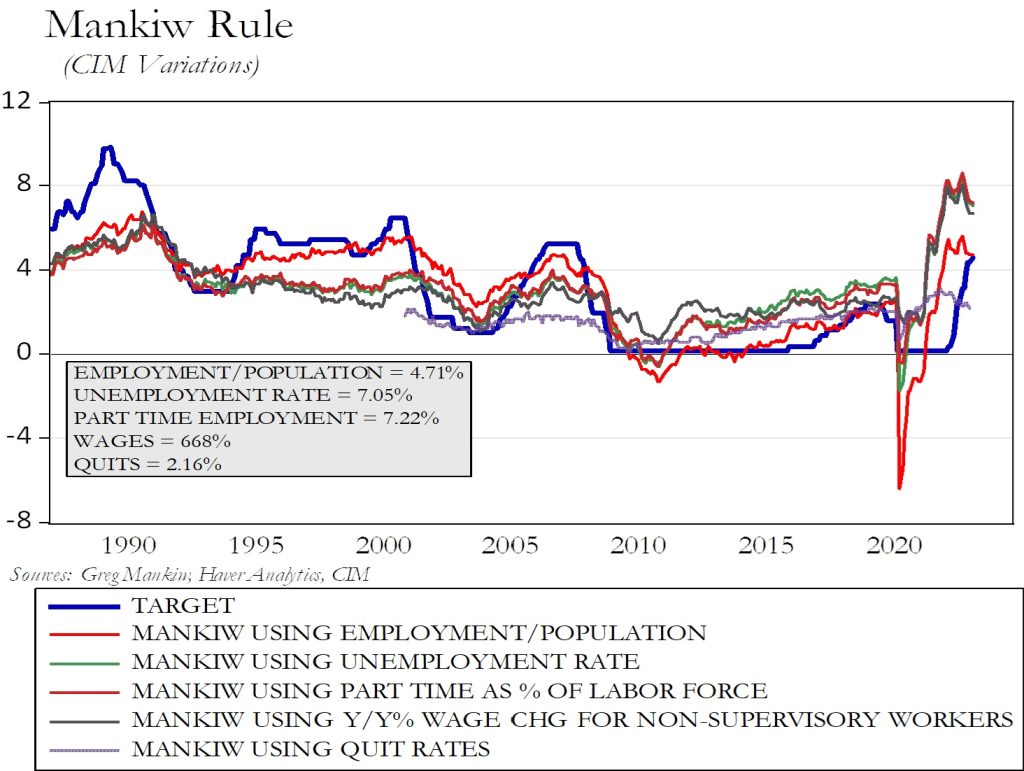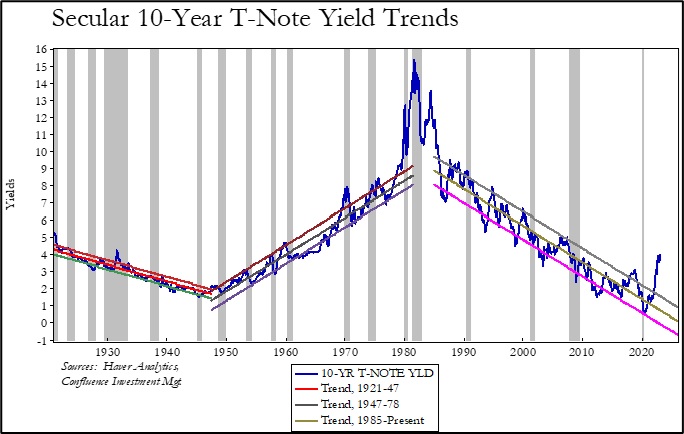by Patrick Fearon-Hernandez, CFA, and Thomas Wash
[Posted: 9:30 AM EDT] | PDF
Our Comment today opens with a key report on Chinese international trade that points to an early slowdown in the Chinese and global economies. We next review a wide range of other international and U.S. developments with the potential to affect the financial markets today, including the nomination of left-leaning officials to the Brazilian central bank’s policy board and a discussion of the Federal Reserve’s latest report on financial stability.
China: The April trade surplus rose to more than $90 billion, but details in the report showed that exports in April were up just 8.5% year-over-year, marking a substantial slowdown from the 14.8% rise in the year to March and adding to concerns that slowing demand around the globe will mean an early demise for China’s post-pandemic economic revival. Adding to the concerns, imports in April were down 7.9% on the year. The figures serve as a reminder that world economic growth is already starting to slow. We continue to believe that the U.S., in particular, is heading for a recession, most likely a bit later in the year.
Canada-China: The Canadian government designated a diplomat at China’s consulate in Toronto as persona non grata for his effort to gather information about Conservative parliament member Michael Chong and his family in China. Intelligence officials believe the diplomat’s aim was to “make an example” of Chong and deter other Canadian officials from taking anti-China political positions. The expulsion will undoubtedly lead to further China-Canada tensions, and, it has already prompted China to expel a Canadian diplomat based in Shanghai.
Pakistan: Former Prime Minister Imran Khan was arrested this morning on charges of corruption. The popular conservative politician was ousted by parliament last April amid an economic crisis, prompting months of mass protests by his supporters. The arrest is widely expected to prolong and deepen Pakistan’s political tensions, making it even harder for the country to overcome its economic challenges.
Eurozone: As if the European Central Bank didn’t have enough challenges with price inflation and rising wage rates in the bloc, union workers at the ECB have forced the institution to launch a pay review that could lead it to institute semiautomatic wage hikes when prices rise. The move puts the ECB in an awkward political position after it has spent months trying to convince the bloc’s employers and workers not to push prices or wage rates too high.
Ireland: With the government awash in corporate tax receipts, Finance Minister McGrath today will formally propose setting up a sovereign wealth fund to channel its bumper surpluses into infrastructure and debt-reduction programs. The “scoping paper” to be given to the cabinet will examine similar plans in Norway, Japan, and Australia. It will also set out criteria for the fund, which is to be managed by the National Treasury Management Agency.
Russia-Ukraine War: Today is Victory Day, when Russians celebrate the surrender of Nazi Germany in World War II. At the scaled down military parade in Moscow’s Red Square, President Putin used the occasion to bizarrely cast the war in Ukraine as a Western attack on Russia. Separately, Russian concern over possible Ukrainian attacks prompted the cancellation of the usual parades and other celebrations in at least 20 cities. Importantly, some observers believe the Ukrainians could launch their counteroffensive today, or at least other major attacks, to spoil the Russians’ big celebration.
Brazil: Leftist President Luiz Inácio Lula da Silva, who has been attacking the Banco do Brasil (BDORY, $8.67) for its tight monetary policy despite the formal autonomy granted to the central bank in 2021, appointed two allies to the institution’s nine-member monetary policy committee yesterday. If confirmed by the Senate, Deputy Finance Minister Gabriel Galípolo, a 40-year-old former bank executive, will serve as the central bank’s new monetary policy director, while Ailton Aquino dos Santos, a career central bank employee, will be director of supervision.
- To bring down inflation, Banco do Brasil is currently holding its benchmark Selic short-term interest rate at a punishing 13.75%. Lula has called for the central bank to cut interest rates to boost economic growth.
- Lula’s lobbying for lower interest rates has raised concerns that he will push for overly loose economic policies. That prospect has weighed on Brazilian equities and the currency in recent weeks.
Chile: Voters over the weekend elected conservatives to 33 of the 51 seats in a constituent assembly that will draft a new constitution to be voted on by the end of the year. The election results mark an about face when compared to the previous 2019 effort to re-write the constitution. The previous process produced a constituent assembly that was heavily weighted towards liberals and resulted in a draft constitution that was voted down in 2022 for being too leftist.
- The voting for the new assembly further weakens leftist President Boric and suggests the new constitution will preserve most, if not all, of the current document’s private-property protections, free-market rules, and other conservative measures.
- The vote is therefore being taken as a positive for the Chilean economy and financial markets, giving a boost to Chilean stocks and the Chilean peso (CLP).
U.S. Fiscal Policy: President Biden and members of his administration will meet today with House Speaker McCarthy and other congressional leaders to discuss how to raise the federal debt limit. The meeting is expected to kick off weeks of discussions ahead of June 1, when Treasury Secretary Yellen has warned that the government will no longer be able to pay its bills or make debt service on its debt. We continue to believe that brinksmanship surrounding the debt ceiling could prompt elevated volatility in the financial market as we approach the deadline.
U.S. Banking Sector: Yesterday, in its semiannual Financial Stability Report, the Fed said its aggressive interest-rate hikes over the last year have increased risks in the commercial real estate sector. In particular, the Fed analysts noted the chance that borrowers might have trouble rolling over their mortgage debt, and that property values could fall sharply enough to cause problems for lenders. The authors asserted that the Fed has responded to the risks by intensifying its monitoring of real estate loan performance and expanding its examination procedures for banks with large commercial real estate exposures.
U.S. Retailing Sector: While we’ve already written a great deal about the challenges for commercial real estate, especially office buildings and downtown retail stores, new analysis shows that suburban retail stores are benefiting from the work-from-home movement. Some restaurants and retail businesses that used to focus on bustling urban locations are now moving to the ‘burbs. With more people spending time closer to home in the suburbs, even regional malls are reporting improved foot traffic.




